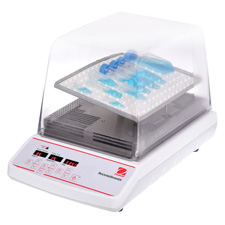| The Home page of ILPI's Safety Data Sheet (SDS) Resource, the leader in SDS information since 1995! | |
| The history and philosophy behind this resource. | |
| A curated collection of books and reference materials concerning Safety Data Sheets and closely related topics. | |
| Paste your plain text SDS into the SDS-Demystifier, and it will be converted into a hypertext-enriched document with links to detailed explanations of each key term. | |
| An extensive list of frequently asked questions about Safety Data Sheets including regulations, content, compliance, and more. | |
| A humorous take on Safety Data Sheet jargon. Fill in the blanks on our entry form to generate a personalized Unsafety Data Sheet to share with your coworkers. | |
| Since 1995, we've maintained this massive curated list of the best places to find Safety Data Sheets on the Internet. | |
| You are here! Way more than a glossary, this hypertext-enhanced resource covers hundreds of SDS-related terms and expert knowledge. Each entry includes both the SDS relevance and links to additional authoritative resources. | |
| Archived results of Safety Data Sheet related polls taken by some of our millions of site visitors | |
| The OSHA regulations behind SDS regulations, including the inspection guidelines and over 400 official interpretations letters under the Hazard Communication Standard | |
| Commercial suppliers of SDS authoring and management software as well as cloud compliance services. | |
| Commercial companies that will create SDS's for your specific needs as well as SDS translation companies. |

Safety signs, banners, and scoreboards? Get yours at Safety Emporium!
Definition
The Ames Test is a way of determining whether a material causes genetic mutations (changes). Animal liver cell extracts are combined with a special form of salmonella bacteria. The mixture is then exposed to the test substance and examined for signs that the bacteria have mutated (a process called mutagenesis).
Additional Info
The Ames test does not directly indicate the carcinogenic (cancer-causing) potential of the substance, however there is a good correlation between mutagen strength and carcinogen strength in rodent studies; approximately 75% of chemicals that have a positive Ames test are found to be rodent carcinogens. However, not all carcinogens will give a positive Ames test.
Despite these limitations and even though rodent test results do not always extrapolate well to humans, given the relative low cost and low test time (days to weeks) compared to traditional animal studies that involve live subjects, the Ames test is an exceedingly useful screening tool for potential mutagens.
SDS Relevance
If this term appears on a Safety Data Sheet, it will usually be in Section 11 (toxicological information) with respect to carcinogenicity.
Any substance that can mutate the cells of your body is generally a Bad Thing. Avoid the use of mutagens if at all possible. If you must work with them, be sure to utilize the proper personal protective equipment (PPE) recommended on the SDS and use appropriate administrative and engineering controls to protect the other occupants of your workplace.

Safety Emporium has all kinds of lab equipment such as this incubating rocking shakers and more.
Further Reading
- The Salmonella/E. coli Mutagenicity Test or Ames Test at the NTP.
- The Ames Test at Kimball's Biology Pages.
- The search for mutagens from cooked foods from Lawrence Livermore National Laboratory.
- Ames mutagenicity test protocol at Nelson Laboratories.
- Ames Test - Introduction, Principle, Procedure, Uses and Result Interpretation at MicrobiologyInfo.com.
- The test that changed the world: The Ames test and the regulation of chemicals from Mutat Res Genet Toxicol Environ Mutagen 2019, May;841, 43-48. Requires institutional access (university, company etc.).
See also: carcinogen, mus (mouse), mutagen.